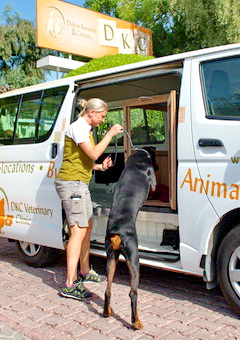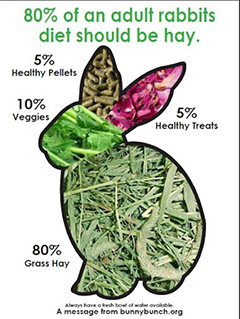neutering your pet

This is a contentious topic among vets and pet owners alike but here is how we see it.
~ ~ • ~ ~
Pet neutering is also known as sterilisation. More specifically though, for males it is often called castration (i.e. dog, cat or even a rabbit castration) and for females it is called spaying (and again... i.e. dog spaying or cat spaying or rabbit spaying, just in case you weren't too sure! 
Cat Neutering
Castrating a male cat is always a good idea as little boy kitties reach sexual maturity at 6 months of age... and usually become a real pesky pet at that point! They are internally driven to wander in search of females (hmmm... sound familiar?) and so often go missing or end up in fights with other cats in the neighbourhood ~ and this makes them more likely to contract either feline leukaemia or feline aids viruses (or both!), which are largely transmitted through fighting. On top of this, you may experience a cat that likes to spray very smelly urine around your house and garden in an attempt to mark his territory ~ not pleasant, we promise you! So castrating before this behaviour becomes learnt is a good way to go in order to prevent this nasty habit. And reducing wandering and fighting and urine-spraying not only makes for a healthier and more desirable pet, but also has the added advantage that your cat is not going out there and contributing to a very real problem in many cities (including and perhaps especially Dubai) ~ that of too many stray and unwanted pets.
For the very same reasons, it's also best to spay your female cat; when she comes into season, she'll do just about everything in her power to get outside and find a male cat, with the inevitable result of unwanted kittens. Furthermore, cats in season are also quite a frustrating thing to experience ~ she will meow and pace around and behave strangely for a straight five-day period (and you like your sleep at night, right?), with a break of only two weeks until the next meowing and pacing cycle... and this cycle continues until she gets pregnant. Oy vey! Oh, and by the way, neglecting (or choosing not) to spay your cat puts her at greater risk for mammary cancer, so there is this major benefit of cat spaying as well.
In other words... you might want to seriously consider neutering your cats, male or female.
Dog Neutering
Spaying a female dog is also on our recommended list ~ besides preventing unwanted puppies (bet you didn't know that!), it's statistically true that spayed females live longer than those that are not. The risk of mammary cancer is also significantly reduced if done early on (before the third heat, but it's best in fact to do this before even the first heat if you want the mammary cancer risk to be zero). Having said this, a potential side effect of spaying is urinary incontinence, but this can be treated successfully with medication if your dog is unfortunate enough to experience it. However, the risk of mammary cancer is statistically higher than the risk of urinary incontinence, so we still do recommend spaying a female dog rather than not spaying her. Furthermore, dog spaying will prevent any risk of uterine infections (a condition known as pyometra), a condition which can be fatal if not treated promptly with surgery. Also, she won't come into heat every six months, which can be a hassle to deal with, as it's messy and you may need to fend off any male suitors that come calling! Spayed dogs do experience a slowing down of their metabolism, so can be prone to obesity... something you as an owner need to be aware of so as to monitor her weight and adjust her food intake accordingly. Large breed dogs are often better off spayed when their bone growth has completed, so talk to your vet about the best time for your dog if you think she's going to be a BIG girl.
There is a much bigger debate regarding the advantages and disadvantages of castrating male dogs. Generally, castrating a male will help control behavioural issues such as aggression, dominance and over excitability, and will also reduce the amount of leg-lifting and peeing to mark territory if it's done before this behaviour is learned. There is the obvious advantage of controlling unwanted puppies, of course, as males are very quick to find a female that's in heat (sound familiar? 
So, the summary for our thoughts on castrating a male dog is that it's better to do it if you're having behavioural issues with your dog and that, if you choose not to do it, you should take care that he does not mate with females and contributes to the ever-growing problem of unwanted puppies. Remember too that castration also causes a slowing down of the metabolism which means you need to keep an eye on your dog's weight going forward; and if you own a large breed dog, you should ask your vet for advice regarding the best time to do the dastardly deed.
~ ~ • ~ ~
Got more questions? Get in touch.






